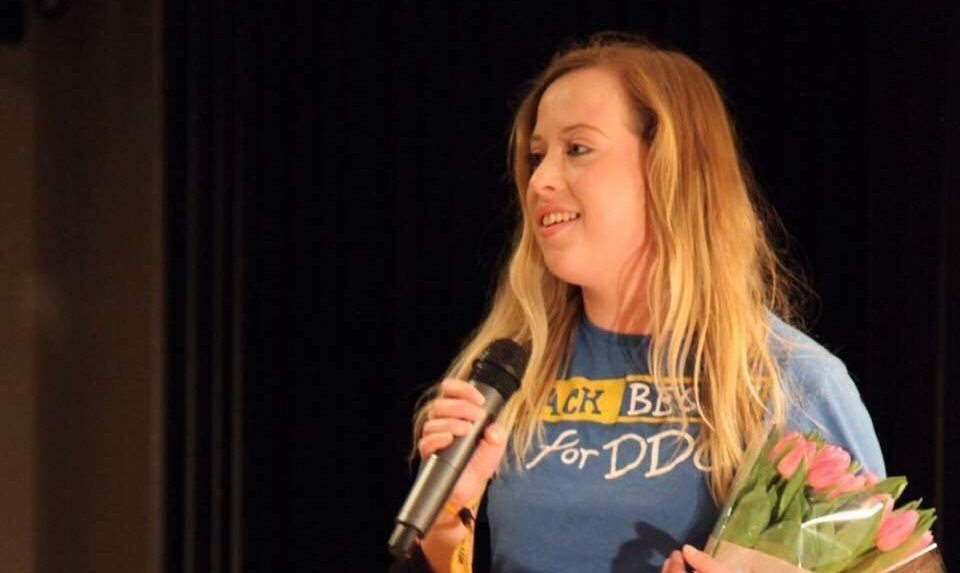The platform is yours to use
“Sorry,” Becky Gittins says following a brief interruption, “tribute to the busy job.” Throughout the interview her phone was buzzing repeatedly, with Becky studiously silencing it each time. Her office, ensconced in the heart of the Student Union Headquarters, was adorned with posters detailing the operation of university democracy. One could not fail to notice that spring elections are upon us.
As the Democracy and Development Officer for Warwick Students Union, Becky bristles when I bring up the turnout of just below 25% in last year’s officer elections. “So the figure that you’ve got, there’s slight nuance to that figure.” Becky cites the significant number of students taught off-site, from Wellesbourne to the Shard, and their inevitable distance from elections.
Pressed on the voting data, she remains upbeat. “I actually don’t think that the figures are bad; I think they are incredibly good. I think that if we treated Warwick like a town, and we got 25% turnout in a town, we’d be like ‘wow, this town really cares about something’.”
You are represented by the SU on your course, whether or not you choose to actively engage.
Throughout the interview Becky answers diligently and assuredly, relapsing into the essayists’ refrain of providing several discreet points to furnish her case – often going so far as to list them on her fingers.
”I think most students will have engaged with the SU, or could have benefited from the SU services in some way throughout their time at university. So you’re automatically a member, think of how many people we catch through clubs and societies. You are represented by the SU on your course, whether or not you choose to actively engage.”
While Becky is keen to redefine engagement beyond simply voting statistics, she accepts the existence of structural barriers to participation. “I think it’s difficult to read into it as one variable, but I definitely say your Warwick experience, how many contact hours you have, what department you’re in does affect it”.
Looking beyond the headline figures, Becky comprehensively and at length constructs a nuanced portrait of various student groups, and the myriad reasons they might have for engaging differently.
Medical School students are often on placements elsewhere, WBS has a high proportion of international students for whom spending a year as a Sabbatical Officer appears to provide visa problems (though Becky offers reassurance that this is something the SU can solve with ease).
When the Sabbatical Officer team this year was elected there was all this, ‘they don’t represent students’. Well students voted for us.
While the situation at Warwick is something Becky is adept at describing, she seems less confident in supplying solutions. She speaks to the responsibility of those running for positions to engage students. “We sort of encourage candidates, saying ‘come on, there’s another 10% of the Medical School whose votes you need to get, get yourself to Gibbet Hill’.” But when I ask how far participation problems are for the candidates to solve she demurs.
Searching for more fruitful ground, I launch the well-rehearsed claim that the SU is full of left-wing activists. Doesn’t this put off students from other political backgrounds? “When the Sabbatical Officer team this year was elected there was all this, ‘they don’t represent students’. Well students voted for us. And a broad student base voted.” She responds.
Engagement from all sides is clearly something about which Becky is passionate. “For every motion at the SU referenda, I want there to be a for and against side. One of the people that I would commend is Ross Copeland, who was one of the people who stood against me for DDO, because he was of one of the perspectives that you might say is not very SU-like, he’s more on the right but he always contributed, and I think there is a huge amount to commend him on.”
We provide the platform and we say come, have your say, debate it, put forward policy
“The SU can’t be expected to always speak for people on both sides if they don’t come and engage. We provide the platform and we say come, have your say, debate it, put forward policy.” Notes of frustration seep through her well-tempered responses. “If people don’t choose to use it, then isn’t that kind of on them?”
“The people who are sort of being accused of being more involved with the SU, they take those opportunities. It’s not for me as DDO to say ‘oh no sorry, someone of your political leanings is already having a policy this year, you can’t have another one’. You see, it’s a difficult one to govern, and I wouldn’t want to.”
Becky’s solution to the engagement problem becomes apparent. “For me it’s much less about what’s written down, and much more about a more substantive, comfortable environment, because I think that’s what matters.” Getting out, speaking to students, and making the process as accessible as possible is what Becky thinks is key to SU democracy.
Becky’s message to students, ultimately, is clear. “You have got to come in and incite the change that you want.” The platform is yours to use.

Comments